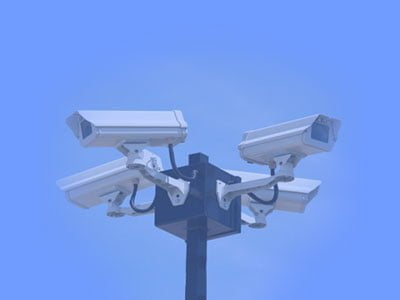
In a significant move to bolster cybersecurity and product quality in India’s surveillance market, the Ministry of Electronics and Information Technology (MeitY) has made STQC (Standardization Testing and Quality Certification) mandatory for all CCTV cameras sold across India, including government and private sector deployments.
If you’re a manufacturer, importer, distributor, or buyer of CCTV systems, this update directly affects you. In this post, we’ll explain what STQC certification is, why it’s now required, and how you can stay compliant before the April 2025 deadline.
What is STQC Certification?
STQC is a certification body under the Government of India, which ensures IT and electronic products meet established quality, safety, and cybersecurity standards.
For CCTV cameras, STQC certification confirms that:
- Devices are free from cybersecurity vulnerabilities
- The products meet Essential Requirements (ER) prescribed by the government
- Safety standards under IS 13252 (Part 1) are adhered to
- There’s a reduction in dependence on potentially risky foreign surveillance products
Key Dates You Should Know
- June 6, 2024: STQC certification became mandatory for all CCTV cameras used in government procurement under the Public Procurement Order (PPO).
- April 9, 2025: The mandate becomes applicable to all CCTV cameras sold in India, including those for private homes, offices, shops, and industrial use.
From this date onward, only STQC-certified CCTV cameras will be legally allowed to be sold or installed across India.
Why This Change is Important
The Indian government’s push for mandatory STQC certification comes in response to:
- Rising concerns about cybersecurity threats from non-certified, unverified cameras
- The need for standardized surveillance equipment in critical and non-critical infrastructure
- Support for “Make in India” by ensuring trusted sourcing from domestic or approved international manufacturers
Who Must Comply?
Every CCTV manufacturer, importer, wholesaler, distributor, and online or offline seller must comply with this new regulation.
Whether you’re a brand owner or a local dealer, if you’re planning to sell or install CCTV cameras in India, your product must be STQC-certified by April 9, 2025.
The Certification Process (Briefly)
- Product Testing: Your CCTV camera models must undergo cybersecurity and electrical safety testing by STQC-approved labs.
- Documentation: Submission of all required technical documents, test reports, and declarations.
- Evaluation & Approval: Once reviewed and approved, STQC will issue a compliance certificate.
This process can take several weeks or even months, so it’s advisable to start early.
Final Thoughts
The STQC certification requirement is a game-changer for the CCTV industry in India. While it adds a layer of responsibility for sellers and manufacturers, it also offers end-users peace of mind regarding the safety and authenticity of the surveillance equipment they use.
If you’re a CCTV reseller, installer, or end-user, make sure the products you’re dealing with are STQC-compliant by April 2025.
Keywords: STQC certification for CCTV cameras
STQC mandatory India 2025
CCTV STQC compliance
STQC ER certification
Cybersecurity certification for CCTV India
Government certification for CCTV India
#Ditsvision #CCTV #SecurityCameras #HomeSecurity #Surveillance #Delhi #NCR #SafetyFirst #SmartSecurity #AffordableCCTV
4o



